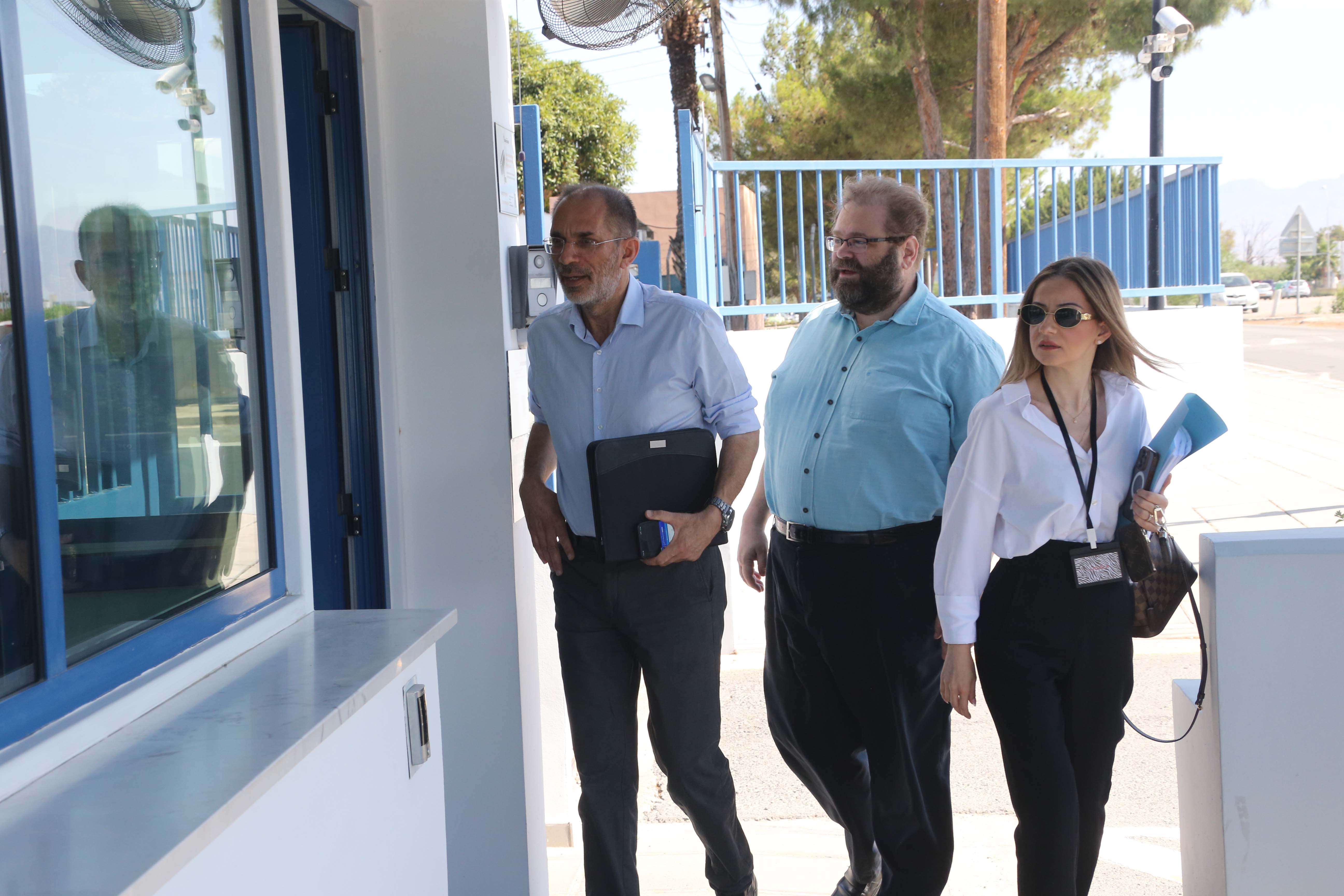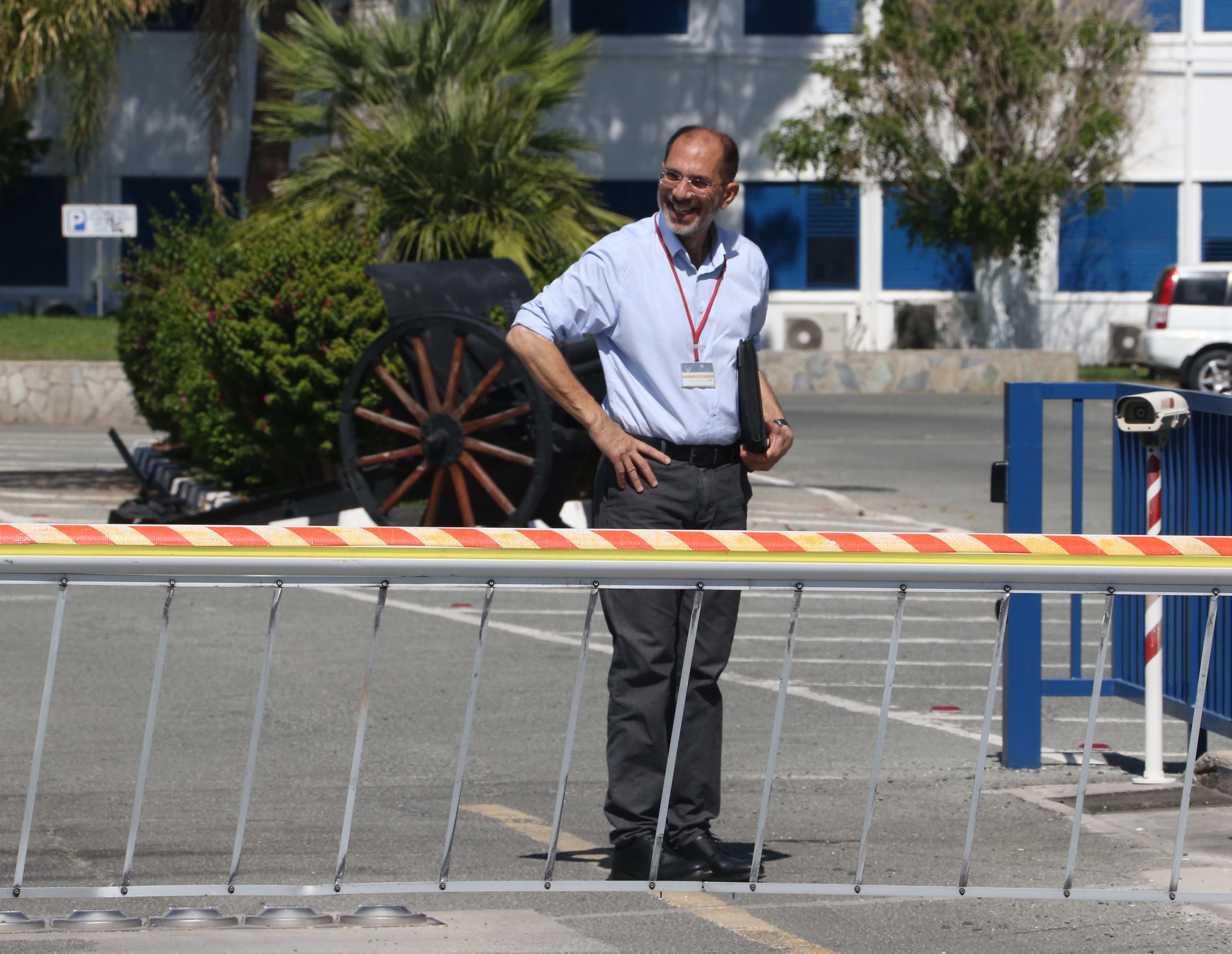Former auditor-general Odysseas Michaelides, who was removed from office by a Supreme Constitutional Court ruling last September, on Friday told the police that he was relieved of his duties as a result of “political persecution”.
He had been summoned to testify as part of a police investigation into alleged contempt of courton his part in light of his dismissal and spoke to journalists after having given his statement.
“The Nikos Christodoulides government’s justice minister [Marios Hartsiotis] initiated criminal proceedings against me after my statements left the president politically exposed. Today, the great conspiracy was revealed,” he said.
He added that the case being brought against him is a “setup”, and added, “despite the fact that I was asked to give an open statement, and was not interrogated, the authorities completed their investigations in the blink of an eye”.
The aim of this, he said, is “political persecution, political silencing, and political extermination”.
In addition, he said, the accusation of contempt of court is not limited to the comments he had made on a television show in May which prompted the investigation but also includes appearances on other television shows between his dismissal in September and last month.
He argued that those other television appearances are “completely irrelevant”, but said that the initiation of proceedings following the May interview was “a moment at which the masks fell”.

“As you know, the attorney-general [George Savvides] and his assistant [Savvas Angelides] are angry with me. I recall that, without showing any shame, the attorney-general called me dishonest and undignified, both in writing and orally, in court. You also know that he has been a friend of [former president] Nicos Anastasiades for 40 years,” he said.
He then added that both Savvides and Angelides are “political friends” of incumbent President Christodoulides and pointed out that all three were ministers under Anastasiades – Savvides as justice minister, Angelides as defence minister, and Christodoulides as foreign minister.
On this matter, he pointed out that Diko leader Nicholas Papadopoulos had previously described Anastasiades’ government “as the most corrupt government”.
“Now, they will have to decide whether to prosecute me for a non-existent criminal offence,” Michaelides added.
He then went on to speak about the European Convention on Human Rights (ECHR), saying that “freedom of expression is protected, with restrictions only being permitted under strict conditions and exclusively when it is deemed necessary in a democratic society”.
He then referred to the ECHR’s guidance on freedom of expression with regard to the judiciary, with the guidance stating that provisions for restriction on freedom of expression “for maintaining the authority and impartiality of the judiciary” do not “entitle states to restrict all forms of public discussion”.
On the matter of contempt of court, the ECHR writes that “save in the case of gravely damaging attacks that our unfounded … [judges] may as such be subject to personal criticism within the permissible limits, and not only in a theoretical ang general manner”.
“Lawyers cannot, moreover, make remarks that are so serious that they overstep the permissible expression of comments without a sound factual basis, nor can they proffer insults,” the guidance later adds.
On Friday, Michaelides said that “I don’t need to say anything else on this”.
He then said he and his lawyers have already informed the European Court of Human Rights (ECtHR) about recent developments.
“We will wait for the next steps and, if they proceed with criminal prosecution, we will consider how to request immediate protection from the ECtHR. This cannot be the Cyprus we deserve,” he said.
The comments which prompted the investigation into Michaelides were made during a television appearance last month. On the same day, he had written on social media that “President Christodoulides is hiding, but was part of the process”, and that “a close aide knew from July 2024, before final arguments, that the Supreme Constitutional Court’s decision would be unanimous”.
The following day, Hartsiotis called on him to produce evidence to support his claims, while the Supreme Constitutional Court made a similar statement, saying that “all evidence allegedly held by Michaelides must be immediately forwarded to the competent state authorities for prompt examination”.
The police visited Michaelides on the same day, though he did not provide them with evidence to support his claims, saying he needed to “protect his source”.
Michaelides was appointed by then president Nicos Anastasiades as auditor-general in 2014, and was relieved of his duties by the Supreme Constitutional in September last year, with an eight-judge panel unanimously ruling that he had conducted himself inappropriately, and that he was thus unfit to carry out the office’s duties.
The court’s verdict was 209 pages long and scathing, with Michaelides having been found to have repeatedly sought to undermine attorney-general George Savvides’ legal opinions, often writing his own interpretations which contradicted those of Savvides.
It was written in the decision that Michaelides “did not limit himself to the role of the whistleblower to the independent anti-corruption authority but reserved for himself the role of a judge after proceeding to draw conclusions on his statements and submissions.”
Additionally, the court referred to “obscene content” which occurred on a social media page dedicated to supporting Michaelides, saying that although the page did not belong to Michaelides, “it bore his name and photograph.”
Michaelides himself had said the decision “essentially abolishes the audit service and democracy”, adding that it “puts a corset, a gag, on the audit office.”
“It is a black day for Cyprus and a black day for our service,” he said.
Savvides had in turn warned those decrying the decision to read it before passing judgement.
“A court order has been issued and I just want to emphasise that it is important to support the [Republic’s] institutions, and to show the required respect to the Supreme Constitutional Court. Woe betide us if we lose faith in the courts,” he said.
Earlier this year, he opened an office with a view of the presidential palace in Nicosia seen by some as a move symbolic of his future political ambitions.
He has since launched a new political party, named ‘Alma’ – Greek for ‘leap’.







Click here to change your cookie preferences